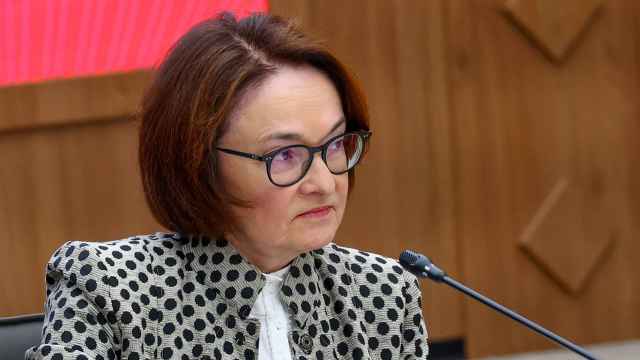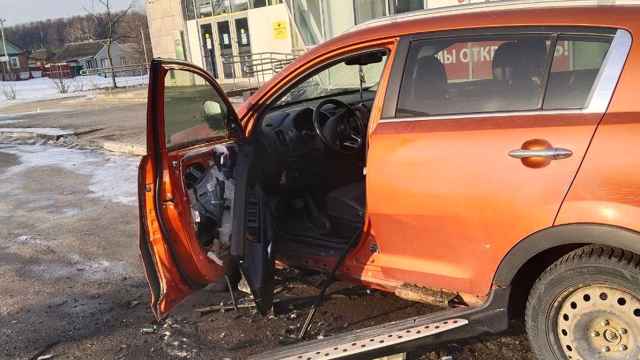Opponents of Ukraine's president declared political autonomy in the major western city of Lviv on Wednesday after a night of violence when protesters seized public buildings and forced police to surrender.
Raising the prospect of Ukraine splitting along a historic cultural and linguistic fault line, the regional assembly in Lviv, a bastion of Ukrainian nationalism near the Polish border, issued a statement condemning President Viktor Yanukovych's government for its "open warfare" on demonstrators in Kiev and saying it took executive power locally for itself.
In other signs of fraying central control for a government seen as close to business magnates from the Russian-speaking east, Poland said Ukrainians blocked the Korczowa border crossing near Lviv. And local media said opposition groups in other western cities, including Khmelnitsky, Ivano-Frankivsk, Uzhorod and Ternopil, also took over public buildings.
Overnight in Lviv, an ancient city of 750,000 and capital of a region of 2.5 million, hundreds of people took part in protests as demonstrators fought riot police in central Kiev, nearly 500 km to the east.
Young men in ski masks seized the offices of Yanukovych's administration in Lviv and forced a surrender by Interior Ministry police, making officers come out with their hands up.
The developments, in a region traditionally hostile to the easterner Yanukovych and fiercely in favor of closer ties with the European Union, drove home the sense of a country, or at least part of it, slipping from his grip.
It underscored, too, the dangers facing a divided Ukraine, its 46 million people trapped in a geopolitical tug-of-war between Russia and the West.
From late on Tuesday, taking their cue from the drama in Kiev that was Ukraine's bloodiest day in just more than 22 years of post-Soviet independence, mobs swept through Lviv's picturesque city centre in a spasm of violence that went unchallenged.Erecting barricades outside a police barracks, the protesters demanded their surrender. Officers filed out, hands above their heads, and were stripped of their body armour.
The barracks were set ablaze, as were the office of the state security service and the premises of the state prosecutor. Rioters tossed papers through smashed windows.
Torched cars lay upturned in the streets.
Riot police in Kiev attempting to fend off Molotov cocktails tossed at them by anti-government protesters.
"We are the citizens of Lviv," the crowd chanted. "We are the strongest."
The regional parliament in Lviv accused Yanukovych's government of "open warfare against the people."
"The parliament takes upon itself all responsibility for the future of the region and its people," it said in the statement.
Though many leaders on either side of the confrontation in Ukraine play down cultural and linguistic tensions, there are marked contrasts between east and west.
Lviv's baroque and neoclassical architecture recalls its past as a regional capital of the Austrian Habsburg empire. Between the world wars, it was Polish. By contrast, Soviet concrete marks the cities of eastern Ukraine, home to coal and steel industries and historically ruled by the Russian tsars.
Yanukovych's political base, many people in the east speak Russian as their first language and prefer to maintain old connections with Moscow. Many western Ukrainians, eager for closer ties with the EU, accuse Yanukovych of being a Kremlin stooge and mastermind of corruption on a grand scale.
Ukrainian television said that in Khmelnitsky protesters had seized the regional administration building and had attacked the headquarters of the state security service.
Police said protesters had also seized the administration building in Ivano-Frankivsk, to the southeast of Lviv. Media reports said the main police station in Ternopil was set ablaze. In the east of the country, cities were calm.
Ukraine's state security service said on Wednesday it was launching an "anti-terrorist operation" across the country after the seizure of administrative buildings and arms and ammunition depots by "extremist groups."
"In many regions of the country, municipal buildings, offices of the interior ministry, state security and the prosecutor general, army units and arms depots, are being seized," SBU chief Oleksandr Yakimenko said in a statement on the security service's website.
"Courtrooms are being burned down, vandals are destroying private apartments, killing peaceful citizens," he said.
The last 24 hours, he said, had shown "a growing escalation of violent confrontation and widespread use of weapons by extremist-oriented groups," he said.
The statement followed violent clashes between anti-government protesters and police in the capital Kiev on Tuesday in which at least 26 people were killed, including 10 police officers.
Reports from the regions of the sprawling country, particularly in the west, suggest groups backing the protest movement in Kiev have seized control of state buildings.
A Message from The Moscow Times:
Dear readers,
We are facing unprecedented challenges. Russia's Prosecutor General's Office has designated The Moscow Times as an "undesirable" organization, criminalizing our work and putting our staff at risk of prosecution. This follows our earlier unjust labeling as a "foreign agent."
These actions are direct attempts to silence independent journalism in Russia. The authorities claim our work "discredits the decisions of the Russian leadership." We see things differently: we strive to provide accurate, unbiased reporting on Russia.
We, the journalists of The Moscow Times, refuse to be silenced. But to continue our work, we need your help.
Your support, no matter how small, makes a world of difference. If you can, please support us monthly starting from just $2. It's quick to set up, and every contribution makes a significant impact.
By supporting The Moscow Times, you're defending open, independent journalism in the face of repression. Thank you for standing with us.
Remind me later.





